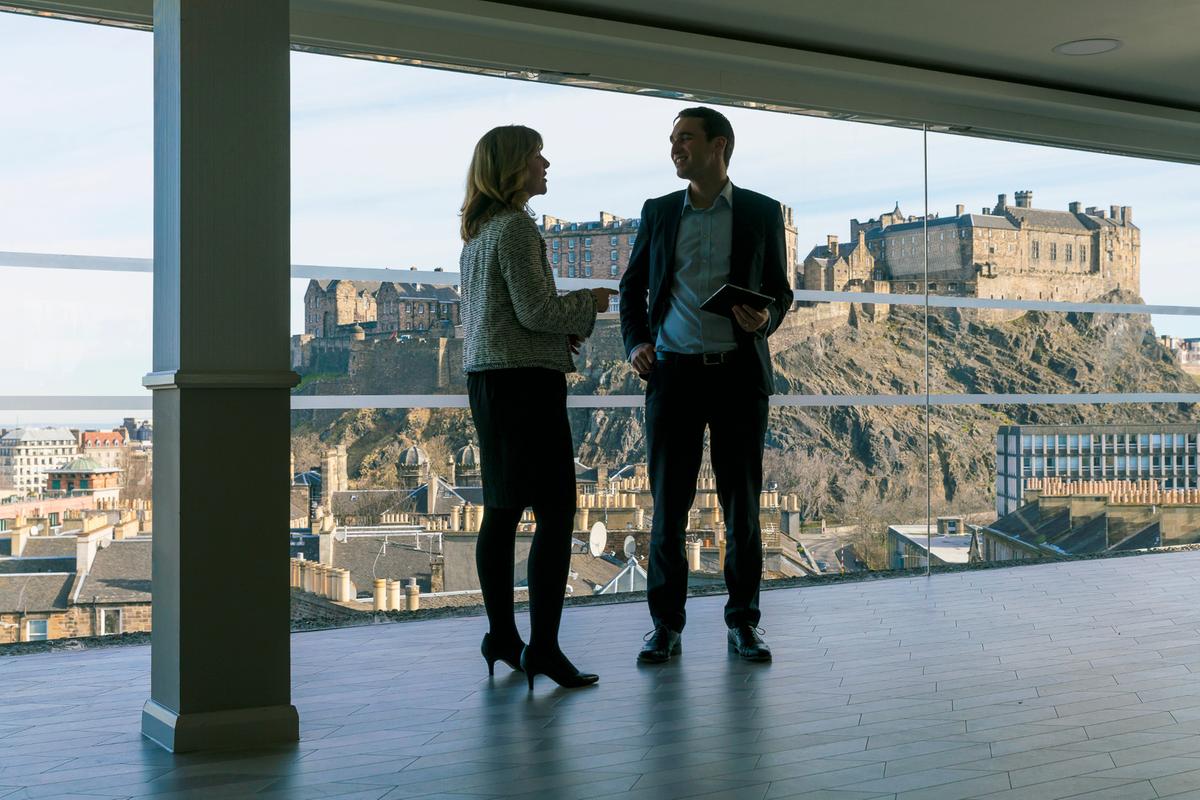Rebecca Brooks, Abbey UK and VisitScotland Board
Article Published 26/05/2021
The VisitScotland board, set up in 1969, meets up to eight times a year and is responsible for approving the direction of the organisation as set out by the management team, providing a general oversight of VisitScotland's practices and to ensure the proper management of the organisation.
We caught up with Rebecca Brooks, non-executive director on the VisitScotland board and Managing Director of Abbey UK to discuss what support she thinks the events sector needs as it begins to reopen and what opportunities she believes Journey to Change and the Policy Driven Model can deliver.
Tell us a bit about your experience within business events and your role on the VisitScotland Board.
I am quite fortunate to be wearing two different hats as one of the owner directors of the Abbey Group and as non-executive director on the VisitScotland board.
Abbey Scotland was established in 2008 and is part of the wider Abbey Group, launched in 1978, which has a substantial conference and events business. As a company we have hosted several high-profile events including the Pope's visit to Ireland in 2018 and the Velo City conference and European Paralympic championships in 2019. We also facilitate a wide variety of association conferences including medical, pharmaceutical and wind energy.
Of course, like many, we have had to adapt and switch to virtual events during the pandemic. Over the past year, we've run 40 virtual conferences and see a huge opportunity in hybrid conferences.
In the wider landscape of Scottish tourism, business events are a significant driver of inbound revenue to the economy and have the added benefit of attracting leisure business.
It has been a privilege and indeed a highlight of my career to serve on the VisitScotland board and see the strides the destination has made in this area. As a non-executive director, I use my expertise and experience within the industry to support the senior management team in the execution of the organisation's vision and strategy. As the national marketing agency for tourism, VisitScotland is instrumental and vital in supporting the industry to attract visitors to our shores.
The tourism and events sector is a huge driver for the economy, contributing around £6bn to Scottish GDP each year. Due to the pandemic many businesses (from suppliers to large venues) have been out of action. What critical support does the industry need as it begins to reopen and what does the future look like for the industry?
Whilst it is great to see that the UK has a very successful vaccine rollout which is helping the wider economy to emerge from the pandemic, recovery for the tourism sector will be slower and will require more support.
Despite the value of anticipated domestic spend in 2021, realistically it will not make up for the shortfall in reduced international visitor spend. We would require an additional 8,000,000 domestic visits this year to compensate for that.
Breathing life back into our cities is dependant on the return of the international leisure and business events sector. We need to see clear and workable guidance from the government for the return of business events. Ideally, we would see a sector specific continuation of the furlough scheme to support businesses which are likely to have very limited trading in 2021 until a fuller recovery in 2022.
Beyond that, a partnership orientated approach between private and public sector bodies to ensure Scotland is promoting the destination in recovery to ensure we emerge stronger than ever.
VisitScotland Business Events recently launched its new campaign, Journey to Change, which showcases how business events can drive social and economic transformation and supports VisitScotland's Policy Driven Model. As Managing Director of DMO Abbey UK, what do you think this approach will deliver for the wider industry in terms of opportunities?
The pandemic has accelerated thinking of how the economic benefit from tourism can be shared across communities and how engagement with local areas can ensure that tourism works as a force for good and mutual benefit. Management and sustainability of the proposition will be key to this.
In my opinion, VisitScotland's policy driven model leads on the fundamentals of this and crosses over into the brand Scotland vision, promoting the destination not only as a place to visit for work or pleasure but to study, live and connect with.
There is an opportunity for the wider industry to position products and businesses in a sustainable and socially inclusive way and for Scotland to become an international leader in this arena.
In your opinion, what are the opportunities for the sector in Scotland post-pandemic and what do businesses in the sector need to do to embrace and benefit from these opportunities?
We are fortunate to be promoting a desirable destination which speaks for itself. Scotland lends itself to experiential travel, a key consideration of the post-pandemic visitor, and is considered a safe destination in the immediate aftermath of the pandemic. The successful vaccine roll out in the UK is seen as a real positive by organisers and visitors alike.
Event organisers and tour operators will be reassessing their portfolios and high-risk countries may be less appealing for 2022. This presents Scotland with an opportunity to attract new business tourism opportunities and increase its market share with high-value visitors who will potentially stay for longer and experience more.
Find out more about the VisitScotland board here


